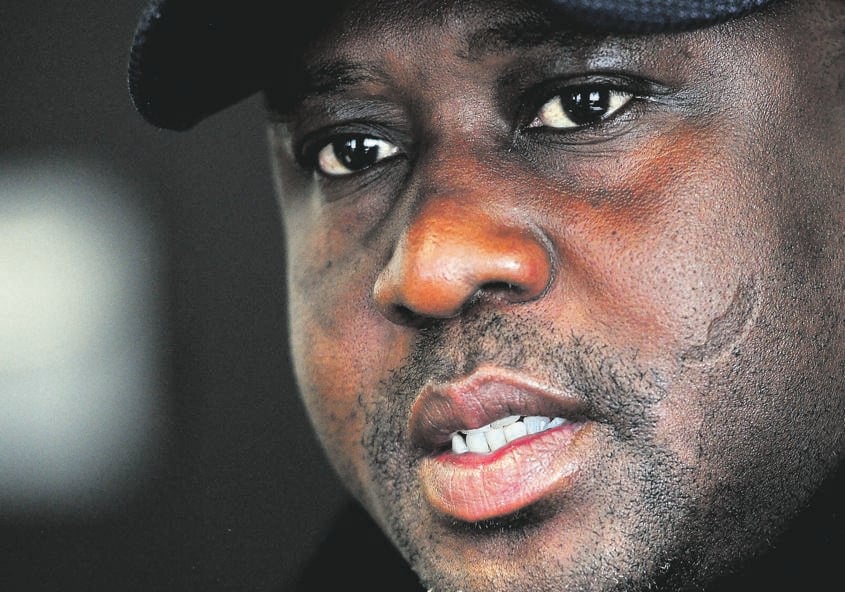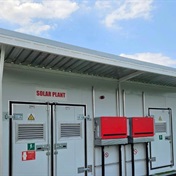
Tighter border controls, shifting processing centres to ports of entry and talks with neighbouring countries are on track for implementation
Government and Parliament are talking tough about introducing a wave of measures in a bid to clamp down on the crisis of undocumented immigrants in the country.
Minister of Small Business Development Khumbudzo Ntshavheni and chairperson of the portfolio committee on home affairs Bongani Bongo are among parliamentarians who have thrown their weight behind a proposal to move refugee centres to the country’s borders, so that those who do not qualify to enter the country are immediately sent back.
Further proposed action includes:
- The implementation of the Border Management Authority Bill, which calls for the establishment of a single authority to manage South Africa’s borders;
- Enhanced coordination between those government departments and state agencies that are affected by migration;
- Strengthening legislation to stem the easy flow and settlement of undocumented migrants; and
- Meeting with officials from the countries where most migrants originate to discuss joint solutions.
NOT A TRUMP APPROACH
Bongo told City Press that legislation needed to be promulgated to guard against undocumented immigrants having “a free lunch” in South Africa.
He said that South Africans would not forgive the government for failing to restrict the mushrooming of small businesses run illegally by foreign nationals.
This follows a series of dramatic raids by the security cluster in downtown Johannesburg last week where counterfeit goods were confiscated, illegal arms were found and a series of arrests were made.
Currently, refugee centres which house foreign nationals while their applications to stay in the country are being processed are located in major cities across the country.
However, a proposal made in a white paper on immigration policy recommends that processing centres be moved to all of South Africa’s ports of entry.
Bongo said this would mean that those who are denied entry to the country will be immediately sent back to where they have come from.
He said this would also assist in speedily rooting out those who came for economic opportunities under the guise of asylum seeking.
Bongo said it would also prevent instances where people slip away from the designated centres once they are inside the country, becoming untraceable.
He called for discussions to be held with “sister countries” from which citizens had fled in their numbers.
“I do not think that this matter needs a Trump-like approach [referring to US President Donald Trump’s widely criticised anti-immigrant policies]. It requires a coordinated approach from all spheres of government. We also need to speak to sister countries such as Nigeria, Zimbabwe, Lesotho and Mozambique. Those countries have the biggest presence in our country. So, we need to discuss, from a home affairs perspective, how we deal with their citizens who live here.”
ACTS OF TERRORISM
Ntshavheni is not backing down from her description of the violent scenes which played out in the Johannesburg CBD last week – in which police were violently repelled by shop owners – as “acts of terrorism”.
She told City Press that acts of terrorism were not only committed by non-citizens but also by locals when they refused to comply with law enforcement authorities and attacked them.
She revealed that some of the guns which were confiscated in raids last week came from Israel.
Ntshavheni, who visited the CBD earlier last week to find out why informal traders were clashing with the police, said it was alarming that “all sorts of armaments that are not even allowed in our country were found”.
“What do you call that? The weapons that were confiscated are from Israel. You cannot even legally bring a firearm into the country from Israel unless there is some sort of security clearance,” she said.
“And the fact that you have firearms from Israel being confiscated in South Africa shows you that we were correct in our analysis that the recent clashes with police were an attack on the state. Therefore, it is terrorism.”
However, Ntshavheni was at pains to point out that her use of the word ‘terrorism’ was not intended to prime law enforcement agencies to respond with maximum force or incite xenophobia, as many of those who were involved in throwing stones at the police last Thursday were suspected to be undocumented immigrants.
“I never said that foreign nationals attacked the police. I said informal business traders attacked the police and that is terrorism,” she said.
IMMIGRANTS ARE A BOON
Town planner and academic Tanya Zack has cautioned politicians against making uninformed and inflammatory statements when referring to South African citizens and to those operating and living in the CBD.
“It is entirely untrue that most of the people there are illegal. What is true is that there are people who come to this country seeking asylum. They are given political asylum and seek documents showing this which are only valid for a few months, so they have to renew them. Hence, you can easily slip from legality to illegality in this system – a system that does not allow you to open a bank account,” Zack said.
“The statistic that the police put out about the people who were arrested gets broadcast in a way that makes it sound as if they have arrested 600 illegal migrants. But if you read the documents, you will realise that all they have done is arrest people in order to verify their status at the police station.”
Zack argues that foreign nationals have been a boon to the inner-city economy and the revival of the CBD.
“In some cases, the area was very dangerous. Their moving in has made these spaces a hive of booming business and a lot safer,” she said, adding that even property values had increased, and services such as transport, food and hotels had improved.
Zack said a study she had conducted with the Johannesburg inner-city partnership in 2017 showed that sub-Saharan African migrants were generating R10 billion worth of business in the CBD. “That is twice the annual turnover of Sandton City shopping centre,” she said.
REFORM LEGISLATION
Bongo told City Press that taking action did not amount to xenophobia.
“The issue of xenophobia is separate to the challenges we want to deal with. Xenophobia is when someone hates all foreign nationals. The main issue here is that the majority of [immigrant] people who are in South Africa are undocumented. They come here under the guise of being asylum seekers when, in fact, they are here for economic opportunities.”
The home affairs committee has also called for the implementation of the Border Management Authority Bill.
The contentious bill, which was penned by the home affairs department under its former minister, Malusi Gigaba, was passed by the National Assembly during the last Parliament, but has been with the National Council of Provinces for the past two years.
Bongo said this was an important piece of legislation as it would consolidate the work of about six departments – including the SA Police Service, the SA National Defence Force, the department of agriculture and National Treasury – into one authority to oversee the borders.
Opposition parties had slammed earlier drafts of the bill, saying it had sought to transfer revenue collection from the SA Revenue Service to home affairs.
‘RESPECT THE LAWS’
Meanwhile, Joburg mayor Herman Mashaba welcomed the intervention by security forces, saying his pleas for help in the city had long gone unanswered.
Mashaba – whose term in office has been characterised by a sustained campaign to document all immigrants – has pushed for cooperation across all spheres of government.
“My calls have always been in line with our Constitution. When people come into the country they must come here legally, and when they are here in the country they must respect the laws of the country. We understand that from time to time there are those who might land in the country fleeing one thing or another in their own country, and we [South Africans] have a responsibility to assist such people. But they also must be documented so that we know who is in the country,” Mashaba said.
“Those who land up in South Africa and do not qualify to get asylum papers should be sent back to their respective countries, while those who are here to commit criminal activities must be sent back to their own country and not even be put in our own jails.”
TALK TO US
Do you agree with the proposals? Do you think that a single border authority will prove successful?
SMS us on 35697 using the keyword MIGRANTS and tell us what you think. Please include your name and province. SMSes cost R1.50




 Publications
Publications
 Partners
Partners








